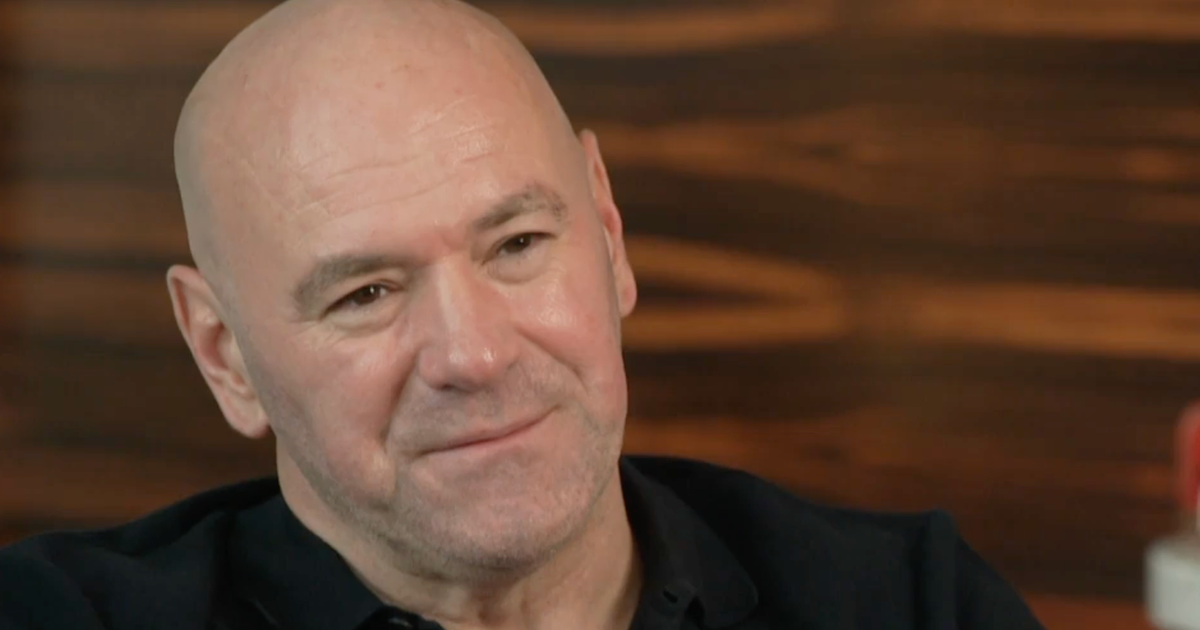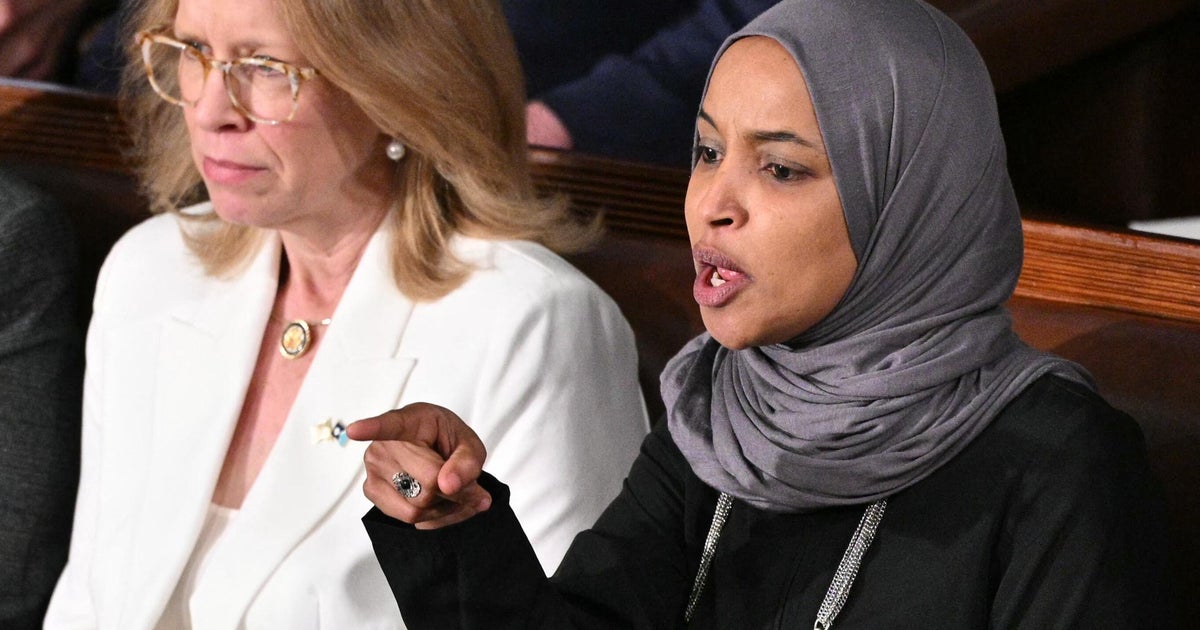Transcript: Rep. Will Hurd on "Face the Nation," May 26, 2019
The following is a transcript of the interview with Republican Rep. Will Hurd of Texas that aired Sunday, May 26, 2019, on "Face the Nation."
MARGARET BRENNAN: We're back with Texas Congressman Will Hurd. He is a Republican who sits on the intelligence committee, and he joins us this morning from San Antonio. Congressman, good to have you here. We- we mentioned Beto O'Rourke is a friend of yours. Is he wrong when he doubts the intelligence that the Trump administration has presented about the threat from Iran?
REPRESENTATIVE WILL HURD: I- I've seen the intelligence, it's very credible intelligence. This intelligence was produced by hard working men in the CIA, in our intelligence community. And this is credible. It's- it's- it's solid and it's our military leaders that are asking for some of these moves to make sure that we're protecting our- our folks in that region. I don't think anybody wants to go to war with- with Iran, but we need to be prepared to protect our- our troops that are already there.
MARGARET BRENNAN: Thank you for that. I know, having worked at the CIA you are particularly attuned to the intelligence community. And- and I want to ask you about this decision the president has made to allow the attorney general to have access to declassify some of the top secrets in this country. As a former CIA officer, does it- does it trouble you? Does it concern you that there is risk here giving someone who is not in the intelligence community access?
REP. HURD: So first and foremost, making sure the intelligence community retains the ability to determine if and how intelligence is declassified is- is critically important. My read of this order by the president giving the attorney general this- this power, it still says that the attorney general has to abide by an Obama-era executive order that- that determines that the head of the agency that has the information. So if the- if the intelligence is from the CIA then- then the head of the CIA gets to determine how that intelligence is ultimately used. One of the things- so- so- so making sure that continues and- and why you hear a lot about protecting sources and methods. We have to remember when you're getting intelligence you're getting it oftentimes from ongoing operations. And so if you reveal a piece of information, our allies might be able to determine where that information comes from. You can put somebody who's sharing that information with us, their life, their family's life at risk. And then it- we prevent from ever having that intelligence source in the future. So that's why this is- this is so important. But also, you know, the United States is unique in that we have civilian oversight of our intelligence community. We give our leaders of the intelligence community a lot of responsibility and making sure that our leaders of the intelligence community are- are crossing all the t's and dotting all the i's is really important. When I travel across the world in my duties on the Intelligence Committee, I often have many of our allies coming and asking us question about their intelligence services because they know how integral this--
MARGARET BRENNAN: Well that is--
REP. HURD: --civilian oversight actually is.
MARGARET BRENNAN: That is why there is some concern here that this could be allowing for some political spin, for weaponizing of intelligence.
REP. HURD: Yeah.
MARGARET BRENNAN: To put this power in the hands of- of an attorney general who is opening an investigation into the investigation of- of Russian meddling. Do you think it's reckless?
REP. HURD: Well, politicization of intelligence is indeed reckless. And that's something that we shouldn't do. But civilian oversight is- is still important. And so it- it's unfortunate that over the last couple of years we've been having this back and forth about the intelligence community. And they're, you know, in essence being abused in- in public. We need to make sure that the men and women in our intelligence community are able to go out and do their information, collect their information. When they're meeting with assets they need- those assets need to know that the information that they're providing is going to be protected. I believe again, this is supposed to be following this executive order from the- from the Obama Administration to make sure that the head of whatever agency is involved in decisions on how to declassify this information. And so- so this is- civilian oversight is- is important. But we also need to be moving beyond this conversation. There's one thing that Republicans and Democrats agreed up here, is that the Russians did try to influence our election and that they're going to try to do it again in the future. And how are we dealing with disinformation? I'm hap- do we have a strategy on how to deal with disinformation? We have to be prepared for this eventuality. And also the- the politicalization of- of intelligence that hurts those- those men and women. It's Memorial Day weekend and, Margaret, you know that and- and you know I- I'm always thinking about Mike Spann and Jim Matthews, my- my former colleagues that were in the CIA and died in- in service. The reason we haven't seen a another major attack on our homeland like we saw on September 11th is because of the men and women in our intelligence services that are still operating as if it's September 12th.
MARGARET BRENNAN: Yes.
REP. HURD: And we need to make sure that we are providing them with the tools they need to continue to do their job and keep us safe.
MARGARET BRENNAN: Well thank you for that reflection. You did bring up disinformation so I want to ask you, as a Republican did it trouble you that the president himself and some of his allies were tweeting out an altered video--
REP. HURD: Yup.
MARGARET BRENNAN: --of the Speaker of the House, making it sound like she was slurring her words. Is this- does this step beyond the pale for you in terms of going beyond your usual political mudslinging?
REP HURD: Alright there- there's a lot of things that's concerning with that video of- of Speaker Pelosi and it was just slowed down to make it seem like she was having a hard time speaking. This wasn't even a deep fake. You know we've been hearing a lot about deep fakes which is the use of artificial intelligence in order to create something new. In this case, at least we had the original to compare the two and recognize that it was- it was- it was doctored in a- in a form or fashion in a- in an- and soon and I think within months, we're going to be able to see this deep fake technology continue to grow. And we're going to see that more and that- we're not prepared. We have old laws to- to decide how you handle disinformation. You have leaders that don't understand how this technology can be used in the future. This goes back into this whole conversation around disinformation and how are we dealing with it. And it's not just the government alone. It's not just the social media companies. It's also the media, academia involved in trying to do this. And also we can't be promoting this stuff and if you can't tell the difference between a doctored piece of information and not, that's- that's troubling as well.
MARGARET BRENNAN: Right. Which is why I asked you if as a Republican, you object to the president disseminating some of that? And the answer it sounds like is a yes.
REP. HURD: You- you shouldn't disseminate information that you know is ultimately--
MARGARET BRENNAN: Yeah.
REP. HURD: --is ultimately doctored. And- and this is- this is going to escalate this debate and this fight. And again this is something--
MARGARET BRENNAN: Yeah.
REP. HURD: --that gets at the heart of our- our democracy and when it comes to disinformation.
MARGARET BRENNAN: Thank you very much, Congressman Hurd for joining us today. We'll be back in a moment.



